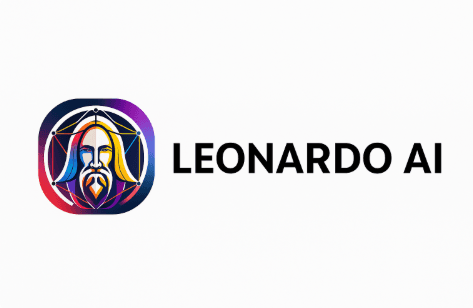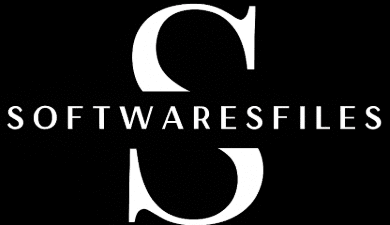
Leonardo AI Image Generator is marketed as a tool that can turn your thoughts into stunning visuals within seconds. At first glance, it seems to merge creativity and artificial intelligence in a way that makes images appear almost hand-crafted. The promise sounds exciting, but as our review uncovers, the reality is not always as flawless as the marketing suggests. If you’ve explored other creative software before, such as the Nurad Editor Software or even AI rivals like Adobe Firefly AI Image Generator, you’ll notice where Leonardo shines—and where it falls short.
Leonardo focuses on creativity in contrast to other AI tools that feel more technical. It is so simple to create professional-looking images that one can design them with just a few words. Regardless of your experience as a designer or not, this AI unlocks new possibilities in the creative process. For those balancing multiple tools, you may also find our guides on Canva AI and Topaz AI helpful comparisons.
What Makes Leonardo AI Different From Other AI Tools
Most AI art tools can spit out images, but they don’t really let you take the wheel. Leonardo is different. It’s not just a robot that draws whatever you ask—it lets you shape the artwork, train it on your own style, and fine-tune the details until it feels exactly right.
Think of it like asking a talented friend to sketch a dragon for your game. They might need a few tries to get it perfect, but Leonardo does it faster, with sharper results, and even gives you creative variations you hadn’t imagined. That’s why it’s winning over artists, marketers, and teachers alike.
The Core Features That Fuel Its Power
| Feature | Why It Matters |
|---|---|
| Custom Models | Train the AI on your style so it creates consistent designs. |
| Live Canvas | Edit parts of an image in real time, no need to start over. |
| Upscaler | Makes images sharper for printing, posters, or professional displays. |
| Batch Generator | Create multiple variations at once, saving hours of manual design work. |
| API Integration | Add Leonardo’s power directly into your apps or websites. |
A Human Experience: How It Feels to Use Leonardo
The first time you open Leonardo, it feels simple and welcoming. The dashboard is clean, the tools are easy to spot, and the prompts help you get started without any confusion. Type something like “a cozy cabin in the snowy woods,” and in just a few seconds, you’ll see multiple unique versions of that idea appear on your screen.
For beginners, it feels almost magical—like your imagination just came to life. For professionals, it’s even more powerful, because they can tweak every little detail until it’s perfect. You can even change just one part of an image without losing the rest of the design. Very few AI art generators offer that level of control, which is why Leonardo feels less like a machine and more like a true creative partner. According to this kind of flexibility is one of the main reasons AI tools like Leonardo are gaining traction among professionals worldwide.
System Requirements
To help readers here’s what they need—whether they use the web version or the beta desktop version of Leonardo:
Web-Based Version (Browser)
Even though Leonardo AI runs in your browser, it still has some basic needs for smooth use:
| Component | Recommended Minimum |
|---|---|
| Operating System | Any modern OS (Windows, macOS, Linux) via browser |
| Internet Connection | Stable—preferably 5 Mbps or higher speed |
| Browser | Latest versions of Chrome, Firefox, Safari, or Edge |
| Memory (RAM) | At least 4 GB (more is better when working large) |
| Processor | Dual-core 1.6 GHz or higher for best experience |
| Storage | Minimal, since content is stored online (no install) |
Even though it doesn’t install locally, having decent RAM and a good connection helps the this software perform its best—making your creative experience smooth and fast.
Beta Desktop Version (Windows / macOS)
For users who prefer the downloadable version, here are the suggested specifications:
| Component | Recommended Minimum |
|---|---|
| Operating System | Windows 7 (or newer); macOS 11.0 (Big Sur) or later |
| Processor | Dual-core 1.6 GHz or faster |
| RAM | 4 GB or higher |
| Graphics | Integrated or dedicated GPU—nothing fancy, but required |
| Storage | At least 10 GB free—for installation and generated files |
| Internet Connection | Stable connection with ~5 Mbps download/upload speed |
This version gives more flexibility—especially if you want features like real-time canvas, offline capabilities, or local file handling.
Human-Friendly Summary
Imagine you want to get started today:
- For most users, just open your favorite browser, ensure you’re connected to the internet, and have 4 GB RAM and a mid-range processor. That’s it.
- If you like a more traditional app experience or need offline work, go for the desktop version—it just needs a bit more space and meets the same baseline requirements.
Practical Uses in Real Life
The isn’t just for fun—it solves real problems:
- Game Developers: Generate characters, weapons, and landscapes quickly.
- Writers: Create book covers or illustrations for children’s stories.
- Marketers: Design unique ad banners and product mockups in minutes.
- Students: Bring school projects to life with creative visuals.
- Artists: Use it as a digital sketchbook to test new ideas.
What Experts and Reviews Say
Tech reviewers often point out that Leonardo strikes the perfect balance between being easy to use and powerful enough for professionals. Outlets like TechRadar and CNET have praised it for its speed, consistent style, and the sharp detail in its results. Some even place it right alongside heavyweights like Midjourney and DALL-E as one of the top players in AI art.
But Leonardo isn’t just getting attention—it’s earning respect. Today, millions of creators across the world rely on it, and that growing trust gives the platform a strong edge when it comes to reputation and innovation.
Pricing That Fits Different Needs
| Plan | Price (Monthly) | Best For |
|---|---|---|
| Free | $0 | Beginners, hobby users, testing small projects |
| Apprentice | ~$24 | Freelancers who need HD images and one custom model |
| Pro | ~$48 | Agencies, marketers, or creators handling big tasks |
| Business | ~$80 | Teams needing multiple models, API access, and speed |
How Leonardo Compares With Competitors
| Tool | Strengths | Weaknesses |
|---|---|---|
| Leonardo | Style training, live edits, batch generation | Requires internet connection |
| Midjourney | High realism, strong artistic detail | Works mainly on Discord, less control |
| DALL-E | Integration with ChatGPT, simple prompts | Limited customization |
The Future of AI Art with Leonardo
AI is shaping the way we create, and Leonardo is at the front of this change. With features like custom model training and workflow integration, it is already more than just a drawing tool. It is a creative ecosystem.
As updates roll out, expect deeper personalization, faster rendering, and stronger community features. The goal isn’t to replace artists—it’s to help them express ideas faster and better.
Frequently Asked Questions (FAQ)
Q1. What is the Leonardo AI Image Generator?
The Leonardo AI Image Generator is a tool that uses artificial intelligence to create images from text prompts or styles.
Q2. Is Leonardo AI free to use?
Yes, Leonardo AI has a free plan with daily credits, making it beginner-friendly. Paid plans unlock advanced features.
Q3. Can I train Leonardo AI on my own art style?
Yes, Leonardo supports custom model training, allowing you to create consistent results based on your style.
Q4. How does Leonardo AI compare to Midjourney or DALL-E?
Leonardo offers more control, live edits, and style training, while Midjourney focuses on realism and DALL-E on simplicity.
Q5. Do I need design skills to use Leonardo AI?
No, even beginners can type simple prompts and generate high-quality images quickly.
How To: Generate Your First Image with Leonardo AI
Step 1: Sign up for a free account on the Leonardo website.
Step 2: Open the dashboard and click “Create Image.”
Step 3: Enter your text prompt (example: “a sunset over the ocean with birds flying”).
Step 4: Choose your preferred style or model.
Step 5: Click generate, then edit or upscale your image if needed.
Step 6: Download your finished image or share it online.
That’s it—you’ve created your first AI-powered artwork!
Conclusion
The short answer is yes—Leonardo is absolutely worth trying. Whether you’re just experimenting for fun or working on serious projects, the Leonardo AI Image Generator has something to offer. It’s simple enough for beginners to pick up right away, yet powerful enough to satisfy professionals who need advanced tools.
What really makes it stand out isn’t just the long list of features—it’s the experience. Leonardo doesn’t feel stiff or mechanical. It feels more like a creative partner that listens, adapts, and helps bring your ideas to life.
If you’ve ever struggled to turn the picture in your mind into something real on the screen, Leonardo could be the tool that finally bridges that gap.
Download Leonardo AI
Get the latest version for your device—safe & official links.




One comment